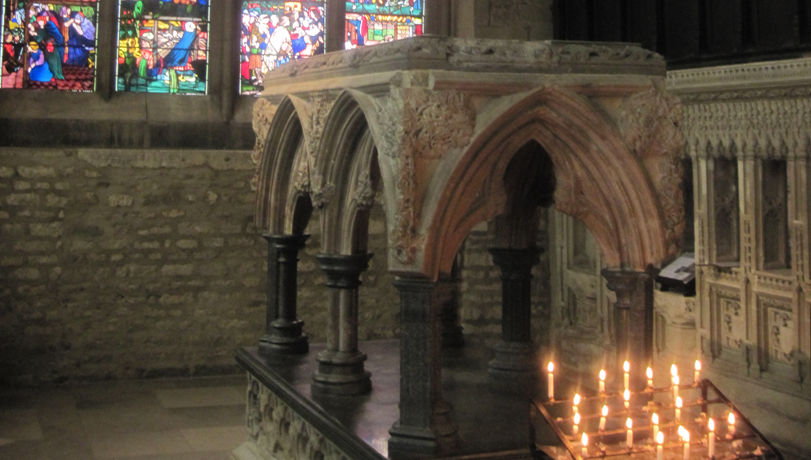C.S. Lewis still has presence in our lives today as if he had died only yesterday. This is perhaps because of his many books, which attract the interest of all ages, are widely read. I know very little about Lewis. But the little that I do know about him and all that I have read from his works shows him to be a holy man and a saint of the Church in all its meanings.
Lewis grew up in County Ulster, Ireland and was a member of the the Church of Ireland as a child but lost his faith as a teenager. He attended the University of Oxford for Literature, especially interested in Norse literature, and after which he fought in World War One in 1917. He remained a staunch atheist for a long time, supporting it in many of his early debates and writings. But, after teaching at Oxford for some time he rejected atheism, converted to Christianity, and joined the Church of England in 1931, partly influenced my J.R. Tolkien and other colleagues. He described the end of the process as stubborn resistance to God and then in "Trinity Term...I admitted that God was God, and knelt down and prayed, perhaps the most dejected and reluctant convert in all of England. Later, in one of the Oxford debates of the 1930s when the question was posed "does God exist?," for the existence of God and additionally, though in a different setting, that Jesus was the Son of God, much to the surprise and contempt of many Oxford fellows. He married the Jewish American Joy Davidman in 1957, while she was in a hospital bed for treatment of bone-cancer. His faith spurred the dozens of books that he published, many of them written to support aspects of orthodox Christianity. These books include "Miracles," which supports divine miracles, and "The Problem of Pain," which explains the existence of pain and suffering in a world made by God. His books "The Chronicles of Narnia" are based around deep Christian symbolism. He died in 1963 and was buried at his parish, Holy Trinity Headington Quarry.
Lewis's sanctity exists in many parts and perspectives of his life. Lewis, as both well accomplished as a secular scholar and theologian; as both a for-some-time atheist and then a faithful, orthodox believer, stands for, among many things, the compatibility of natural knowledge and the orthodox Christian faith. In a time where the Christian faith has been attacked as archaic, superstitious, without reason, and hypocritical, orthodoxy is important and fortunately Lewis, certainly a man of reason and natural knowledge has also provided us with a defense from these questions. As he himself was a non-believer who used reason to criticize the Church, his acceptance of Christ and defense of Christian religion serves as an motive for the Church's continuing support of orthodoxy. He serves as an example to the faithful and to the questioning that the Christians can fully accept orthodox Christianity and accept natural and scientific fact and reason at the same time, which is why he is so important to the modern Church.
Lewis was added to the liturgical calendar of the Episcopal Church of the United States in 2011 for November 22 with the following collect:
O God of searing truth and surpassing beauty, we give thee thanks for Clive Staples Lewis whose sanctified imagination lighteth fires of faith in young and old alike; Surprise us also with thy joy and draw us into that new and abundant life which is ours in Christ Jesus, who liveth and reigneth with thee and the Holy Spirit, one God, now and for ever. Amen.
 |
| Narnia window at Holy Trinity Headington Quarry, Lewis's parish church. |


No comments:
Post a Comment